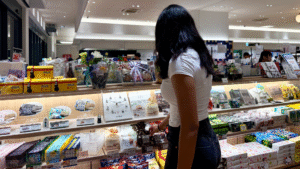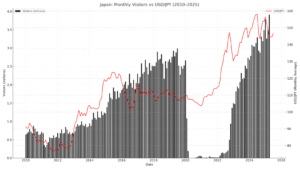17-year-old asserts the need for tourists to think before spending when travelling in Japan

August 11, 2025. Reva browsing at a shopping mall in Nagasaki, Japan.
11 August 2025 opinion
As overtourism threatens Japan’s economy, let’s try conscious spending
As an American tourist in Japan, I am in awe of everything that gives this country its charm. The culture, food, heritage, and even the convenience of public transport has definitely made it clear why Japan was chosen as the “most attractive country in the world” for two years straight.
While the main reason I am here is for the Harbingers’ Hiroshima and Nagasaki newsroom, I would be lying if I wasn’t excited about the prospects of some good shopping. I came ready with a curated list of uniquely Japanese items with attractive price tags to take back home to America with me.
And I am not the only one. For many around the world, the weakening value of the yen, since 2021, made Japan the new budget friendly travel hotspot.
But there’s a catch: tourists like me, from countries with strong currencies, come prepared to spend their big dollars like they do back home without understanding its effect on the local economy. The lack of awareness enables Japanese businesses to set their prices according to what tourists are willing to spend instead of reasonable rates that locals can afford to pay.
Japanese locals are left paying foreign prices without having the same foreign salaries at their disposal to pay for the inflated goods.
Tourism boom
Since the 1990s, prices in Japan have remained relatively stagnant, resistant to inflation, however, ever since the solidification of the tourism boom in 2023, the controlled prices began to hike up noticeably. If tourists are not careful with where and how they spend their money, no one, locals or tourists, will be able to enjoy Japan as it is — rich in culture, impressive in its beauty and economically accessible.
According to the Japan National Tourism Organization (JNTO), there was a 21% increase in visitor arrivals in the first six months of 2025 compared to the same time period of 2024, breaking new records of tourism for Japan.
While tourist spending may seem like a trivial issue on the surface, with international tourists spending 8 trillion yen ($53 billion) in 2024 alone, there are real consequences that need to be addressed.





